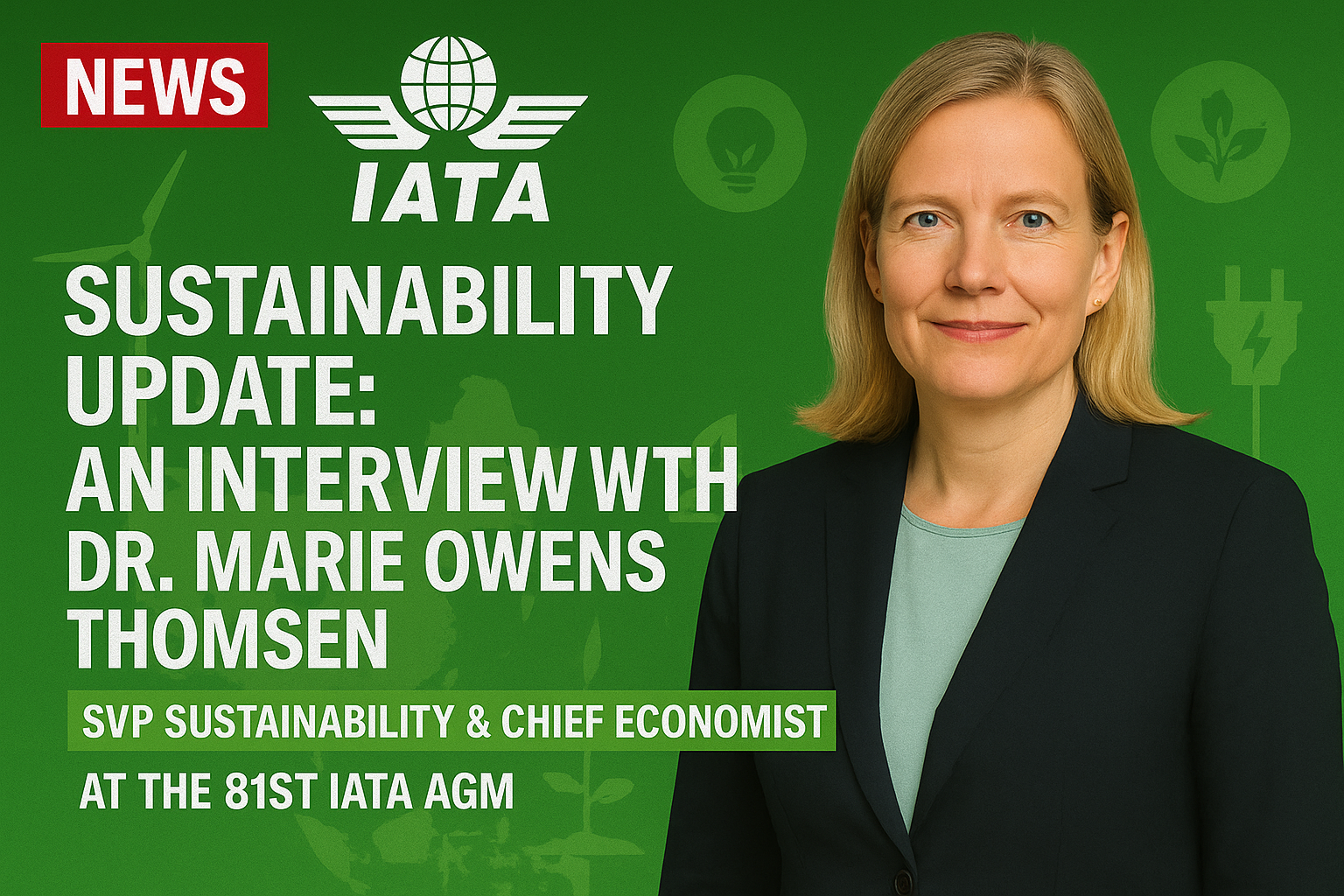As the aviation industry accelerates its path toward net-zero emissions by 2050, IATA’s Senior Vice President of Sustainability and Chief Economist, Dr. Marie Owens Thomsen, is calling for renewed urgency, smarter policy, and global cooperation to meet this monumental challenge.
The Waning Urgency Around Sustainability
Dr. Owens Thomsen highlighted a paradox stalling momentum: declining oil prices. “Historically, new energy markets have emerged out of a sense of acute necessity—typically when oil prices were high,” she explained. “With lower oil prices and shifting political priorities in major economies, the global sense of urgency is fading—just when it should be intensifying.”
She warns that this complacency could derail the momentum needed to transition the aviation sector, and the broader economy, to a more sustainable future.
The $4.7 Trillion Question: Who Pays for Decarbonization?
The estimated cost of decarbonizing aviation — a staggering $4.7 trillion — requires a unified energy transition, not industry-specific silos, Dr. Owens Thomsen argued. “We need to approach this from an energy systems perspective,” she said. “The world is still consuming over 80% fossil fuels. The solution is to scale renewable energy in all forms, for everyone. If we segment the approach by sector, we are sure to fail.”
Mandates and Market Readiness: A Cautionary Tale
Reflecting on the European Union’s Sustainable Aviation Fuel (SAF) mandate, Dr. Owens Thomsen expressed skepticism. “Mandating in a market that is almost non-existent was predictably ineffective,” she said. Mandates can be powerful tools, she acknowledged, but only after supply and technology are established.
She also criticized the removal of procurement control from airlines, noting that some carriers may wish to produce their own SAF. “Imposing fees on those airlines makes no sense,” she noted, and advocated for greater flexibility and industry-driven solutions.
The Global Approach: Corsia vs. Fragmentation
Dr. Owens Thomsen emphasized the strength of Corsia, the global carbon offsetting system for international aviation. “It may not be perfect, but a single global system is vastly better than 27 competing ones,” she said. “Fragmentation in the airline industry is incredibly damaging. We must keep the playing field global and unified.”
Practical Tools and Real Progress
To support airlines in their sustainability journey, IATA has launched several practical initiatives:
- SAF Registry: Launched just one month ago, this system tracks the environmental benefits of SAF usage, enabling accurate claims and benefit transfers. Already, over 70 organizations are participating.
- SAF Matchmaker: Soon to be unveiled, this digital platform will connect SAF suppliers with airlines, fostering direct relationships and transactions.
- Contract Templates and Best Practices: Sometimes small details matter. IATA now provides negotiation templates to streamline SAF procurement and help avoid legal or contractual pitfalls.
- Data Monitoring and Knowledge Sharing: A core function of IATA’s sustainability agenda is making high-quality data and insights accessible to support informed decision-making across the industry.
Conclusion
With bold investments and clear-eyed leadership, IATA is laying the groundwork for a sustainable future in aviation. But Dr. Owens Thomsen’s message is unequivocal: urgency must return, unity must prevail, and solutions must scale. Only then can the industry reach its net-zero goal — and help the broader global economy decarbonize alongside it.


